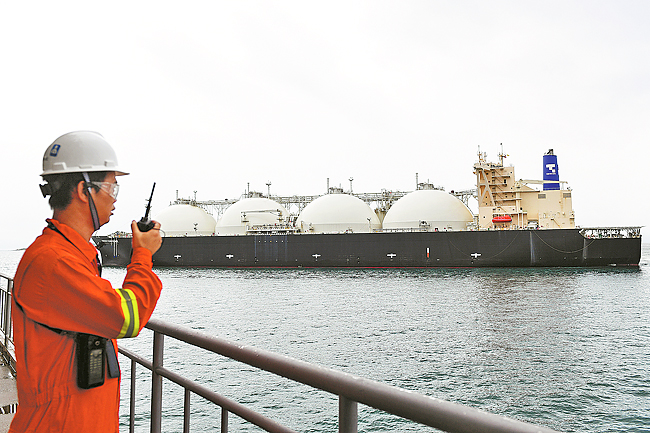ANN/CHINA DAILY – China has been stepping up its natural gas purchases as well as facilitating construction in recent years, as part of efforts to ensure sufficient energy supply amid its green transition, said industry experts.
The country is looking to sign more deals to avoid future shortages and reduce dependence on spot deliveries, with 33 per cent of global long-term liquefied natural gas volumes going to China, according to Bloomberg’s calculations.
China is on track to become the top importer of LNG worldwide in 2023, as Chinese companies agree to buy more on a long-term basis than any single nation for the third straight year, data compiled by Bloomberg reveal.
An analyst said as China heavily depends on imports for natural gas, the country must diversify its imports among various countries as a cushion against geopolitical disruptions and uncertainties.
“Energy security has always been a priority for China, as the country is making efforts to avoid energy shortages while seeking to fuel economic growth,” said Sinopec Economics and Development Research Institute’s intelligence and research head Luo Zuoxian.

China’s natural gas consumption rose steadily in the first seven months of 2023 amid efforts to achieve green development, with apparent consumption of natural gas during the January-July period standing at 227.1 billion cubic metres, up 6.5 per cent year-on-year, according to the National Development and Reform Commission.
In July alone, apparent consumption of natural gas increased 9.6 per cent year-on-year to 32.49 bcm, data from the country’s top economic regulator showed.
According to Luo, state-owned enterprises have played a key role in ensuring sufficient natural gas supply in recent years.
State-owned China National Petroleum Corp recently sealed a 27-year deal with Qatar with a stake in the latter’s massive expansion project, while ENN Energy Holdings also inked a decades-spanning contract with US developer Cheniere Energy. Supplies from both contracts are slated to begin as soon as 2026.
Companies including CNOOC, Zhejiang Provincial Energy Group and Beijing Gas Group are also in search of similar deals.
As Chinese companies are signing more contracts, they are gaining more control over the global LNG supply, with China playing a key role in balancing the market, Luo said.
According to, BloombergNEF analyst Li Ziyue, long-term contracts, with a relatively steady price compared to the spot market, help China to secure LNG supply in an increasingly volatile gas market, with large fluctuations in spot prices. China’s efforts will, in turn, help support global export projects, while Beijing’s influence on the market is also set to increase, she said.
China’s LNG imports could rise to as high as 138 million metric tonnes by 2033, nearly double the current levels, according to Norwegian consultancy Rystad Energy.


